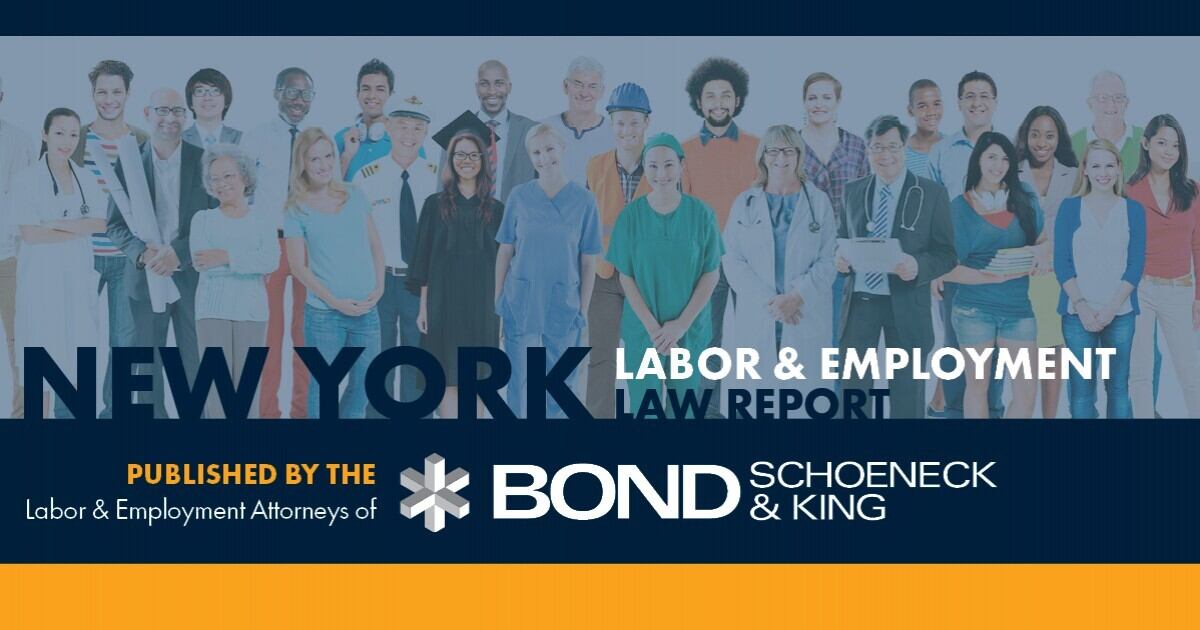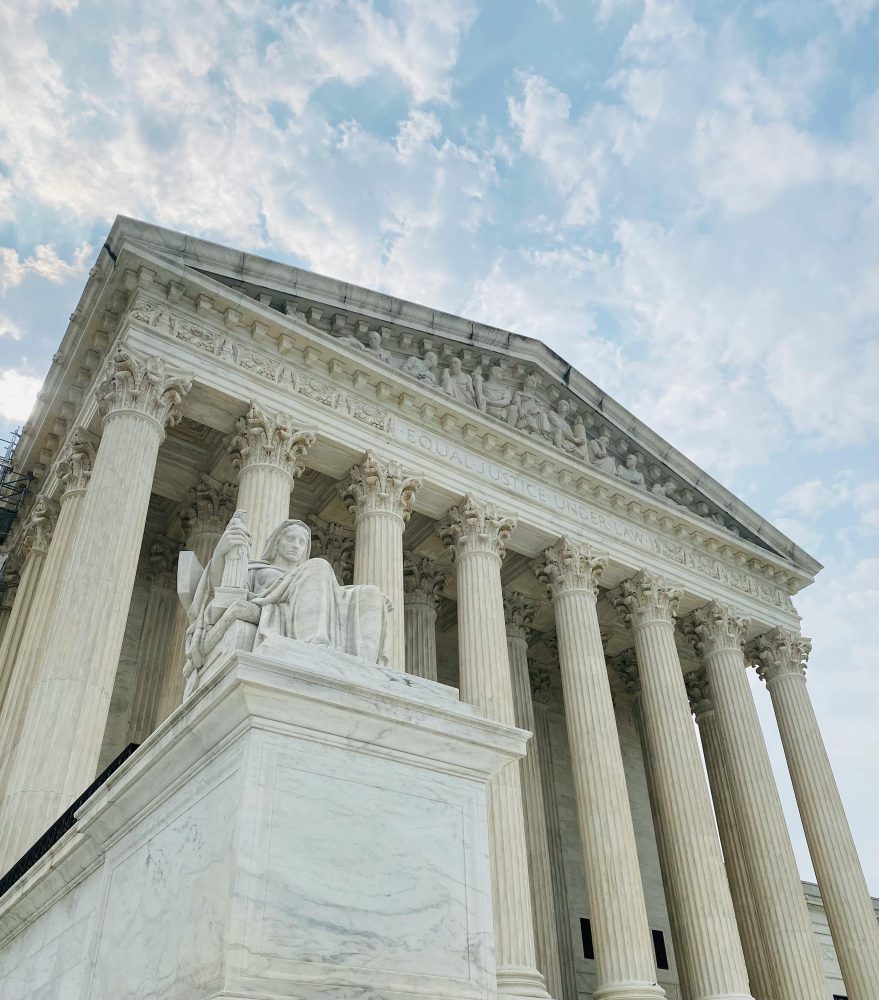NLRB General Counsel’s Expansion Of Remedies Could Pose New Liabilities And Headaches For Employers Who Simply Enforce Their Policies
By: Jennifer L. Mora and Elliot Fink On April 8, 2024, National Labor Relations Board (NLRB or Board) General Counsel Jennifer Abruzzo issued GC Memo 24-04, which builds on previous GC memoranda from 2021 and 2022 where General Counsel Abruzzo announced her intention to pursue broad remedies, such as consequential damages, against employers who commit... Continue Reading

By: Jennifer L. Mora and Elliot Fink

On April 8, 2024, National Labor Relations Board (NLRB or Board) General Counsel Jennifer Abruzzo issued GC Memo 24-04, which builds on previous GC memoranda from 2021 and 2022 where General Counsel Abruzzo announced her intention to pursue broad remedies, such as consequential damages, against employers who commit unfair labor practices in violation of the National Labor Relations Act. The new memorandum expands the GC’s capacious reading of the Act’s remedial powers into the thorny area of work rules (and contract terms) currently regulated by the Board’s novel decision in Stericycle, Inc., 372 NLRB No. 113 (August 2, 2023) (our blog post on that decision can be viewed here).
Overview of GC Memo 24-04:
In short, the memo marks a new high water mark in the General Counsel’s “dedicated efforts to obtain full remedial relief for victims of unlawful conduct,” whereby, in addition to the rescission of the offending rule or contract term, the Regions are now directed to also seek “make-whole remedies” in cases where they have found Stericycle violations by employers for maintaining overly-broad work rules or “contract terms.”
Previously, when critiquing work rules or other policies of an employer in the context of an 8(a)(1) unfair labor practice (ULP) charge, the Board has generally not sought any remedy beyond rescission of the unlawful rule or policy unless a specific employee has alleged harm from the enforcement of the offending rule. However, now, in any 8(a)(1) case where the Board finds that an employer has maintained a work rule OR contract term considered “unlawful” under Stericycle, the General Counsel is urging the Regions to seek reinstatement and/or disciplinary expungement stemming from any enforcement of the rule, policy or contract term, even regarding “employees who have yet to be named.” As the memo notes, this treatment of 8(a)(1) charges is intended to resemble the remedies that are sometimes associated with unilateral change 8(a)(5) charges.
This new directive adds a few new wrinkles to consider for employers subject to 8(a)(1) charges:
- During the compliance stage of any ULP proceedings, the Regions will now assess whether any policy that violates Stericycle “has been enforced against any employees.” (emphasis added). This means that during settlement discussions, employers seeking to resolve potentially-unrelated matters will be asked to identify which employees these policies have been enforced against during the 10(b) statutory time period, which is generally up to 6 months before any charge was filed.
- Under the General Counsel’s aspirational Continental Group theory that she is pressing, the Regions to urge the Board to adopt here:
- Not only would unidentified employees be subject to the Board’s remedial powers, but this would also include employees disciplined or discharged under the unlawful rule or contract term even for conduct that is not protected concerted activity, but instead only “touches the concerns animating Section 7.” 357 NLRB 409, 412 (2011).
- To avoid enforcement of remedies under Continental Group, the employer would have to show that the disciplined conduct actually interfered with the employer’s operations and that it was that interference (not reliance on the unlawful rule or contract term) that precipitated the employer’s disciplinary action.
- In cases that do not settle, the General Counsel expects the Regions to ensure that disciplinary expungement and backpay for any employees affected by the policy or term would be requested as a remedy in any subsequent ULP complaint.
- Further, where an employer uses judicial process to enforce an allegedly-unlawful term, the General Counsel has asked the Regions to urge the Board to adopt a new remedial procedure that would allow employees against whom such terms were enforced to “have the legal action withdrawn and recover legal fees and costs.”
What This Means for Employers:
Like her previous memos regarding captive audience meetings and non-compete agreements, this new guidance from General Counsel Abruzzo signals her continued efforts to expand the Board’s reach to regulate affairs in non-union workplaces, and therefore employers of all shapes and sizes should be paying attention. This includes employers who have never previously had any threats of organizing nor ULP charges before the NLRB.
Now, under the General Counsel’s guidance, theoretically, any Board investigation of an employer’s work rule (which simply could concern a seemingly-harmless handbook policy, such as a civility rule) or a contract term (for instance, a pre-employment arbitration agreement) could subject the employer to the aforementioned make-whole remedies (e.g., reinstatement, rescission of discipline, backpay, paying the legal fees of employees against whom an employer attempts to enforce their policies) and require them to go back numerous years. Specifically, if an employer were to appeal a Board decision to a Circuit court (a time consuming process that can take several years), the General Counsel’s theory here could require restoration of the status quo and rescission of discipline for an unlawful work rule or contract term going as far back as half a decade or longer, including monetary and other make-whole relief.
Moreover, employers must remain cognizant that the Regions are seeking handbooks, agreements, and other applicable policies that could be viewed as problematic under Stericycle from employers as a matter of course during ULP investigations, which sets up a collision course with these new expanded remedies that could leave employers on the hook for tremendous liabilities and administrative headaches in complying with the Board’s mandates. Given that they stem from an expansive reading of the Act, it is likely that these theories will be heavily challenged by management interests in the federal courts.
Furthermore, the possibility of overturning discipline is now present for not only work rules, but also contract terms, which is a novel interpretation of the Act. This seems to suggest that there could be some teeth behind enforcement of some of the General Counsel’s priorities in areas not traditionally regulated by the Board or the Act, such as eliminating use of confidential releases of employment claims and stemming the use of non-competes and other restrictive covenant agreements.
Unfortunately, this new memo builds on earlier efforts by the General Counsel that have somewhat tied the Regions’ hands in terms of settling cases, since the level of cooperation that the Board is seeking during its compliance phase has rendered the prospect of working with the Board less and less attractive (and the notion of litigating against the Board more appealing). All of this could ultimately lead to a decline in the number of cases settled and an increase in the caseload for an already under-staffed agency buckling in the face of its limited resources. One final note is worth mentioning – at this point these concepts are merely the General Counsel’s objectives, and they are not yet the law (and perhaps they never will be).
We recommend that employers use this guidance as an opportunity to take a moment to review their policies and applicable employment agreements to assess for potential issues. If you have questions about this guidance, are faced with a Board investigation or need assistance revising your policies or employment agreements in light of Stericycle, please contact a Seyfarth specialist so our experienced team of attorneys can help advise you on these or any other labor law issues.
What's Your Reaction?





























